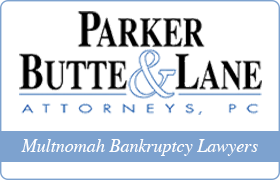Portland Bankruptcy & Debt Lawyer, Oregon, page 2
Sponsored Law Firm
-
 x
x

Click For More Info:
Parker, Butte & Lane
-
Parker Butte & Lane
1336 E Burnside St Ste 200 Portland, OR 97214 » view mapPortland, OR Bankruptcy Lawyer Changing Lives, One Case At A Time
Our attorneys provide complete and personalized representation and counsel for corporate and nonprofit clients as well as for individuals.
800-811-9561  Richard J. Parker Portland, OR
Richard J. Parker Portland, ORAttorney At Law - OR, 1980
Golden Gate University School of Law
A. Richard Vial
Construction, Aviation, Civil Rights, Collection
Status: In Good Standing Licensed: 43 Years
Aaron J. Bell
Electronic Commerce, Civil Rights, Corporate, Business, Credit & Debt
Status: In Good Standing Licensed: 37 Years
Aaron S Lohman
Estate Planning, Business & Trade, Bankruptcy
Status: In Good Standing Licensed: 10 Years
Aaron Blankenship
Construction, Environmental Law Other, Corporate, Credit & Debt
Status: Inactive Licensed: 24 Years
Albert N. Kennedy
Real Estate, Litigation, Civil Rights, Bankruptcy
Status: Deceased Licensed: 82 Years
Alex Isa Poust
Electronic Commerce, Civil Rights, Credit & Debt, Bankruptcy
Status: In Good Standing Licensed: 32 Years


 Richard J. Parker Portland, OR
Richard J. Parker Portland, OR
